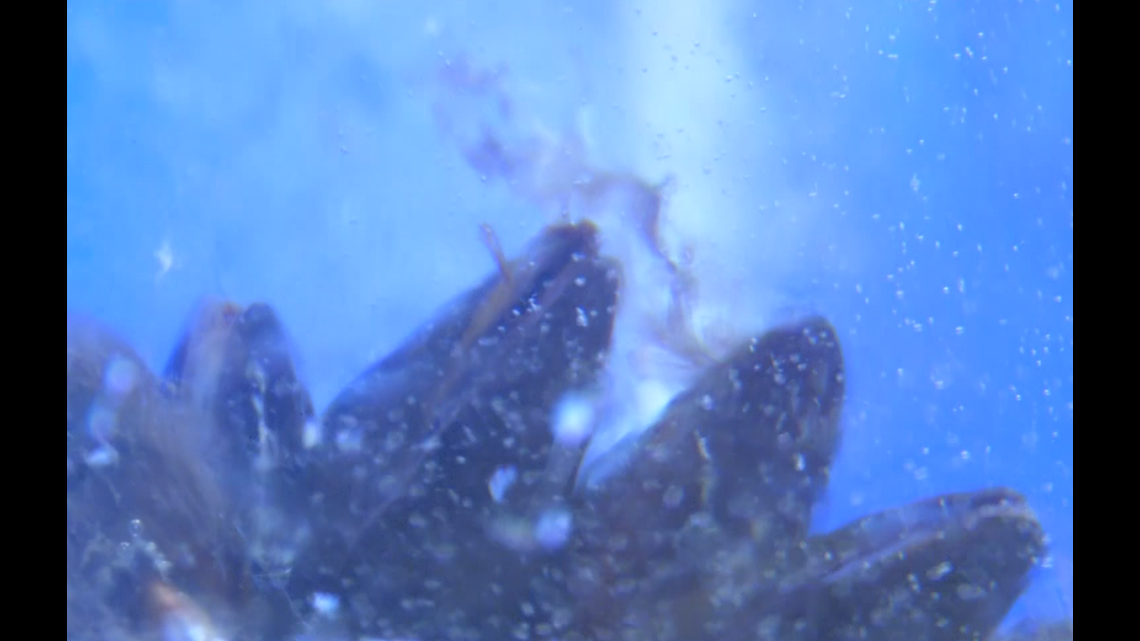
Secrets from the sea that could someday soon improve surgery or eliminate the need for stitches
MUNCIE, Ind. — Tanks full of sticky sea creatures that could soon improve modern surgery.
Purdue University materials engineer Jonathan Wilker has spent years studying blue marine mussels to see what makes them stick to surfaces underwater.
"We try to keep them happy!"
Because when these mussels are happy in cold, moving water, they produce more plaque, the stringy material covering the glass.
"So, what these animals do, it seems, is they make fairly unique modifications to their proteins to turn them into adhesives," said Wilker.
The same principles in a lab-engineered product could have a crucial role in surgeries.
Wilker and his team are testing how the adhesives could bond bone or skin instead of stitches!
"If you have sutures, what you're doing is you're poking holes in healthy tissue, and then you're tying things together," explained Wilker.
"You're creating sites of mechanical stress."
One of the key components being studied in order to develop adhesives from marine mussels to replace sutures is a very unique class of proteins.
Proteins have been called the machinery of biology as they can do a lot of different things.
A large portion of the human body is made out of proteins or enzymes and what it seems that the blue marine mussels do, are they modify these proteins to create an adhesive quality.
Wilker's findings are among dozens of inventions this year that could change medical practices.
"What is very interesting at Purdue is we do not have a medical school, but we create quite a few human health-oriented companies," said Purdue Research Foundation president Brian Edelman.
The Wall Street Journal named Purdue third behind M-I-T and Stanford for the number of start-up companies from university-licensed technology.
That includes new devices to monitor the heart, and another to detect cancer cells.
And now, a pathway to bond the human body back together.
Professor Wilker's lab at Purdue University has developed five to six new adhesive systems so far and they are constantly working on developing more and incorporating different properties into each.
If this story has impacted your life or prompted you or someone you know to seek or change treatments, please let us know by contacting Jim Mertens jim.mertens@wqad.com or Marjorie Bekaert Thomas at mthomas@ivanhoe.com.
December 29, 2020 at 07:32AM
https://ift.tt/3aNHDdA
YOUR HEALTH: Sea creatures could help you heal - WQAD.com
https://ift.tt/2CoSmg4
Sea
/cloudfront-us-east-2.images.arcpublishing.com/reuters/CZF6NULMVVMEXHOP7JK5BSPQUM.jpg)
No comments:
Post a Comment